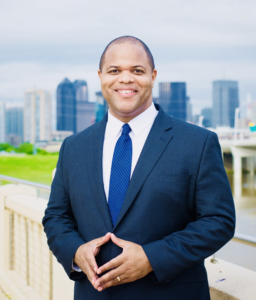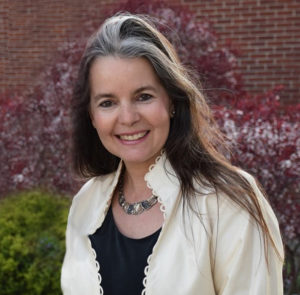The livestream panel was the second in the Climate Mayors National Dialogue on Green and Equitable Recovery, an event series running through the fall with leaders in different regions across the U.S.
Watch the full discussion HERE.
September 2, 2020 – Today, Houston Mayor Sylvester Turner, Austin Mayor Steve Adler, and San Antonio Mayor Ron Nirenberg participated in a panel discussion as part of the Climate Mayors National Dialogue on Green and Equitable Recovery. The event convened like-minded institutions, partners, and policy makers for a discussion about successful climate initiatives in Texas and ways that the panelists have collaborated to advance climate action both locally and nationally.
Today’s conversation was the second in a Climate Mayors event series advocating for national leadership to prioritize recovery policies that are environmentally sustainable and socially just in the time of COVID-19. It was moderated by journalist Evan Smith, CEO and co-founder of The Texas Tribune.
“Now more than ever, mayors across the country are prioritizing a transition to a more sustainable, equitable and resilient economy — it is time our federal government do the same,” said Climate Mayors Co-Chair Houston Mayor Sylvester Turner. “Houston has seen firsthand how human-induced crises, like climate change and the worsening COVID-19 pandemic, can devastate communities and disproportionately harm our most vulnerable populations. With a sustainable recovery, we can confront environmental injustice, protect our communities, and pull our country out of the worst economic crisis since the Great Depression. For the future of Texas, we must meet this moment and invest in a sustainable future, and I’m proud to be in great company with my fellow Texan mayors who are doing just that.”
“Climate change is perhaps the defining challenge of our time. We must meet this challenge in ways that reflect the immediacy and extent of the crisis,” said Climate Mayors Steering Committee member Austin Mayor Steve Adler. “This is most true as it impacts our communities of color. They face disparities generally — and ones uniquely associated with climate change. We will use every tool we have to fight at the nexus of systemic inequities and climate change.”
“As Mayor of the 7th largest city in the nation, I am committed to ensuring the health and wellbeing of our residents. Being proactive about climate change in Texas means that we consider how extreme heat and severe storms affect our economy, infrastructure, workforce, and the families who call San Antonio home,” said Climate Mayors Steering Committee member San Antonio Mayor Ron Nirenberg. “This is particularly important now while we are faced with addressing COVID-19, a recession, and systemic racism, our recovery must support our efforts to address the unfolding climate crisis. At the local level, we are proactively implementing policies, programs, and projects and embracing new technology to reduce our greenhouse gas emissions to reach carbon neutrality by 2050. We are focused on reducing energy and transportation consumption, advancing the circular economy, and promoting biodiversity and healthy ecosystems. So that our residents feel empowered to participate in the conversation, we have established climate advisory committees and a Mayor’s Youth Engagement Council for Climate Initiatives. Hearing all voices and perspectives is essential for a just, equitable and green recovery.”
Later events in the Climate Mayors series will highlight policies and initiatives undertaken by climate leaders in the Great Lakes and Ohio Valley regions, as well as a nationally-focused discussion in October. Mayors and their partners will highlight how environmental initiatives can help stimulate local economies, create jobs, improve public health, and reduce carbon emissions in the wake of COVID-19. They will also discuss the ways that their sustainability policies prioritize frontline communities and communities of color, who are more likely to be affected by pollution and the negative impacts of climate change.
“It’s become increasingly clear that climate change isn’t just an environmental issue — it is intrinsically tied to our public health, our economies, our national security, our housing, and our infrastructure,” said James Ritchotte, Director of Climate Mayors. “As seen by the recent wildfires in California and the devastation caused by Hurricane Laura in the Gulf, climate change is already here. In Texas and around the country, mayors are committed to climate-focused solutions that create good-paying jobs while prioritizing public health and racial justice. Houston, Austin and San Antonio have served as examples of climate leadership, and they’ll continue to lead the way in building an economy that is better than the one we leave behind.”
The first event in the series occurred July 23 and included Orlando Mayor Buddy Dyer, Miami Mayor Francis Suarez, Columbia Mayor Stephen Benjamin, and US Representative Kathy Castor, Chair of the Select Committee on the Climate Crisis. Watch the first event in the series here.
For more Information on upcoming events in Climate Mayors National Dialogue on Green and Equitable Recovery, please visit www.climatemayors.org.
###
About Climate Mayors
Representing over 74 million Americans from 48 states, Climate Mayors is a peer-to-peer network of 464 U.S. city mayors who have committed to fighting climate change. Originally founded in 2014, the network’s ranks swelled to almost 400 mayors in response to the Trump administration’s withdrawal from the Paris Agreement. Climate Mayors commit to taking ambitious action to meet each of their cities’ current climate goals, while working together towards achieving our national Paris targets. Climate Mayors is founded and Chaired by Los Angeles Mayor Eric Garcetti, and Co-Chaired by Mayors Sylvester Turner (Houston) and Martin J. Walsh (Boston). For more information, visit www.climatemayors.org and follow us on Twitter and Facebook.
Media Contact: Melody Meyer, mmeyer@bpimedia.com; Grace Hemming, ghemming@bpimedia.com



